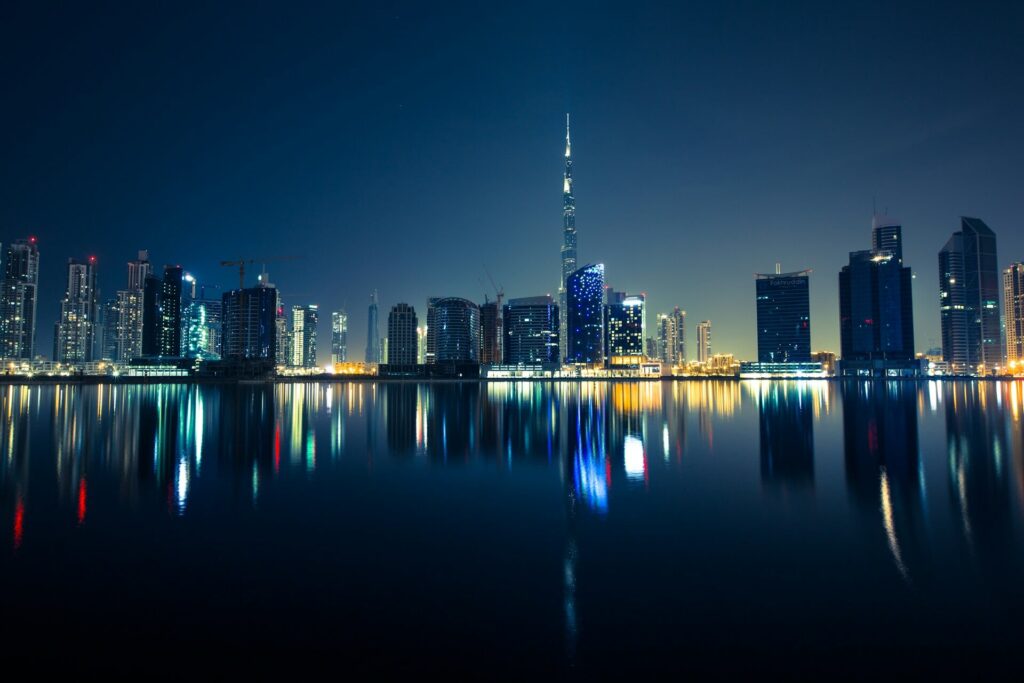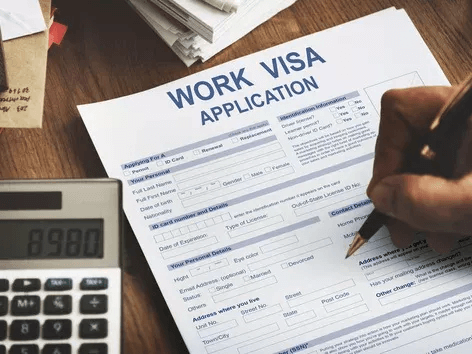Moving to Dubai is an exciting opportunity, but the process can feel overwhelming without the right information. This comprehensive guide is designed to help prospective expats navigate every aspect of relocating to this thriving metropolis.
Whether you’re considering Dubai for its tax-free income, unparalleled lifestyle, or booming job market, this guide offers a step-by-step roadmap to make your transition smooth and successful.
Dubai, one of the seven emirates in the UAE, has become a global hub for business, innovation, and luxury living. It’s home to over 3.6 million residents (as of 2025), with expatriates making up nearly 85% of the population.
Dubai boasts a tax-free income policy, world-class infrastructure, and a vibrant cultural scene. While it offers countless opportunities, challenges like high living costs, cultural adjustments, and extreme summers must be considered.
Key Highlights:
- Tax-Free Earnings: Enjoy more take-home pay as Dubai has no personal income tax.
- Diverse Opportunities: Thriving industries include finance, technology, hospitality, and real estate.
- Safety and Security: Dubai ranks among the safest cities globally, with a low crime rate of 1.1% per 100,000 residents.
- Quality of Life: From pristine beaches to luxury malls and iconic skyscrapers, Dubai offers an unmatched standard of living.
Who This Is For
This article is tailored for:
- Single Professionals: Seeking career growth in sectors like tech, healthcare, or finance.
- Couples: Looking to explore an adventurous lifestyle together in a cosmopolitan city.
- Families: Searching for family-friendly amenities, top-tier schools, and a secure environment.
Why Move to Dubai?
Dubai continues to attract expatriates worldwide due to its many advantages:
- One of the biggest draws for professionals is Dubai’s zero personal income tax, allowing individuals to save significantly more compared to other countries.
- With state-of-the-art airports, modern public transport, and architectural marvels like the Burj Khalifa, Dubai embodies innovation and progress.
- Dubai is ranked as one of the safest cities globally, boasting advanced surveillance systems and strict law enforcement.
- As of 2025, Dubai’s economy is expected to grow by 4.5%, driven by tourism, real estate, and tech innovation. It’s a thriving base for entrepreneurs and multinational corporations alike.
Dubai for Expats
Expats flock to Dubai for its inclusivity and multicultural environment. With residents hailing from over 200 nationalities, Dubai offers a melting pot of cultures, cuisines, and festivals. Moreover, expats enjoy benefits such as:
- High-quality healthcare.
- Access to international schools with British, American, and IB curriculums.
- Networking opportunities in global industries.
Common Challenges
While Dubai offers numerous benefits, it’s essential to be prepared for challenges:
- Respecting Islamic traditions, especially during Ramadan, is vital for social harmony.
- Housing in popular expat neighborhoods can range from AED 60,000 to AED 200,000 annually, making budgeting essential.
- The summer months (June to September) can be harsh, with temperatures exceeding 40°C (104°F).
By weighing these pros and cons, you’ll be better equipped to determine if Dubai aligns with your lifestyle and goals.
Preparing to Move
Relocating to Dubai requires thoughtful planning to ensure a smooth transition. From securing the right visa to organizing your belongings and setting a realistic budget, this section will guide you through the crucial preparatory steps.
Visa and Residency
- Employment Visa: This work visa is usually sponsored by your employer, valid for two to three years (depending on the contract).
- Investor/Partner Visa: For those establishing or investing in local businesses; requires a minimum investment as dictated by local authorities.
- Golden Visa: A long-term residency visa (5 or 10 years) offered to investors, entrepreneurs, and specialized talents in certain fields (e.g., medicine, research).
- Family Visa: If you have a valid residence permit and meet the monthly salary requirements, you can sponsor immediate family members.
Always check the most up-to-date regulations through the General Directorate of Residency and Foreigners Affairs (GDRFA) or the official UAE government portal (www.government.ae) since visa rules can change.
Budgeting for Your Move
Moving to Dubai involves several upfront costs. Here’s a sample breakdown in a table for rough estimates in USD:
| Expense | Estimated Cost Range |
|---|---|
| Flight Tickets | $400 – $1,200 (one-way) |
| Moving Costs (Shipping) | $1,000 – $5,000 |
| Visa Processing | $300 – $1,500 (depending on type) |
| Initial Accommodation | $1,500 – $3,500 (monthly) |
| Car Rental (Monthly) | $600 – $1,200 |
| Emergency Fund | $3,000 – $5,000 |
Aim to have at least three to six months’ worth of expenses saved. Dubai’s job market in 2025 remains strong but is also competitive, so having a buffer offers peace of mind.
Note: Many employers include relocation allowances in their job offers. Don’t hesitate to negotiate for these benefits if they’re not initially provided.
Packing and Shipping
Whether you’re moving with just a few suitcases or a houseful of furniture, understanding the logistics of shipping to Dubai can help you avoid headaches and unnecessary expenses. Here’s what to keep in mind:
1. Choosing a Shipping Method
- Air Freight: Faster but more expensive. Ideal for smaller, high-priority items (e.g., essential documents, valuables) that you want to arrive quickly.
- Sea Freight: More cost-effective for large or heavy shipments like furniture, appliances, and bulky household goods. Depending on your origin and shipping route, it may take 3–6 weeks to arrive at Dubai’s ports.
- Consolidated Shipping (Groupage): If you don’t have enough items to fill a full container, consider shared-container services where your goods share space with other shipments to lower costs.
Request quotes from multiple shipping companies (e.g., DHL, Aramex, UPS for air freight; specialized movers for sea freight). Make sure to compare included services like insurance and door-to-door delivery to get the best value.
2. Customs and Documentation
- In addition to a detailed packing list, you may need your passport copy, residence visa, and any invoices or receipts for valuable items.
- Check Dubai Customs for an up-to-date list of restricted or prohibited items, including certain electronics, medications, or culturally sensitive materials.
- Used personal items are usually exempt from customs duty, provided they’re not brand new or in large commercial quantities. New or high-value items might incur customs fees.
3. Coordinating Delivery and Unpacking
- Once your shipment arrives in Dubai, you (or your shipping agent) need to clear customs. If you’ve booked a door-to-door service, the company will handle customs clearance and deliver items to your new home.
- If you live in an apartment complex or gated community, check building regulations for delivery times or restrictions. Some places require prior notification to security or management.
- Plan for the disposal or recycling of boxes and wrapping materials. Most communities in Dubai have dedicated recycling bins, and specialized services can handle bulk waste if you have a large volume.
4. Choosing a local moving company
- Choose a reputable moving company. Check online reviews, seek local expat recommendations on Facebook groups or other community forums, and ensure the company is licensed (DED registration) and provides insurance coverage.
- Decide between full-service, partial packing, or transport-only solutions; verify if furniture disassembly/reassembly is included.
- Schedule early, especially in peak seasons, keep an inventory of items, and confirm any building permissions needed.
- Some residential buildings or gated communities require a permit or prior notice for moving activities. Confirm with building management to avoid last-minute holdups.
Some movers partner with cleaning services or handyman teams, allowing you to bundle tasks like post-move cleaning or minor repairs at a discounted rate.
Packing Checklist
- Passport, driver’s license, medical records, and attested educational certificates. Keep digital copies for backup.
- Laptops, chargers, and adapters suitable for UAE plug types (Type G). Many electronics can be bought in Dubai, but personal items may be cheaper elsewhere.
- While Dubai is modern, modest clothing is recommended in certain public places. Also, pack formal attire for potential business meetings and social events.
- If your company provides furnished housing, consider what personal items you still want to bring. Otherwise, basic furniture and home essentials can be found in local stores like IKEA, Home Centre, and PAN Emirates.
- Check UAE’s list of prohibited substances. Carry prescriptions for any medications you bring.
Finding a Place to Live
Once your visa and initial paperwork are sorted, the next big step is finding suitable accommodation. Dubai’s real estate market is diverse, ranging from high-rise apartments near the coastline to suburban villas in gated communities.
Best Neighborhoods for Expats
- Downtown Dubai: Home to the Burj Khalifa and Dubai Mall, ideal for those who enjoy being at the center of city life.
- Arabian Ranches / DAMAC Hills: Suburban communities known for spacious villas, family-oriented amenities, and green spaces.
- Dubai Marina: Known for its scenic waterfront promenade, luxury high-rises, and a bustling social scene. Ideal for young professionals and singles looking for an urban lifestyle.
- Jumeirah Lake Towers (JLT): Popular among professionals due to more affordable rents compared to neighboring Dubai Marina, plus the area offers numerous dining and fitness facilities.
- Arabian Ranches / DAMAC Hills: Gated, suburban community with spacious villas and townhouses. Ideal for families wanting a more residential feel, away from the city center.
- Business Bay: A rapidly developing area close to Downtown, with modern skyscrapers, hotels, and easy Metro access.
Rental Market Overview
- Annual Rent vs. Monthly Rent: While rent is often quoted annually, many landlords accept multiple checks spread throughout the year (e.g., 1–4 checks). Negotiating more checks can result in a slightly higher total rent.
- Lease Duration: Most leases are for one year. Early termination may involve penalties unless you have a force majeure clause or a mutual agreement with the landlord.
- Ejari Registration: Once you’ve signed a tenancy contract, you must register it with Ejari (an online system by the Dubai Land Department) to legally validate the lease and for official processes like getting an internet connection.
- Budget for additional costs, such as a 5% security deposit and real estate agent fees (2-5% of annual rent).
- Cost Ranges: Depending on the neighborhood and property type, a one-bedroom apartment can range from $1,200 to $3,000 per month, while villas can start at around $2,500 and go up to $10,000 or more.
- Negotiating Tips: It’s common to pay rent in one to four post-dated checks in Dubai, though some landlords are now more open to multiple installments. Negotiating rental terms is possible, especially if you agree to fewer annual checks or commit to a longer lease.
- Finding Real Estate Agents: Real estate brokers are plentiful, but opt for registered agents with the Dubai Land Department (DLD) for credibility. Use reputable real estate websites like Bayut or Property Finder to compare prices. Avoid deals that seem “too good to be true,” and always verify the agent’s RERA (Real Estate Regulatory Agency) license.
Temporary Accommodation Options
- Serviced Apartments: A convenient choice for newcomers offering furnished units with housekeeping, utilities, and sometimes gym access.
- Short-Term Rentals: Websites like Airbnb or specialized local platforms list furnished apartments with flexible lease terms—ideal while you scout for a long-term place.
- Hotels: For very short stays (1–2 weeks), hotels can be suitable. Look for promotions or corporate rates if your employer partners with certain hotel chains.
Aim to book temporary lodging for at least 2–4 weeks to allow enough time for property viewings and negotiation. Moving too quickly can lead to regrets if you haven’t thoroughly explored the market.
Legal Considerations When Moving to Dubai
When moving to a new country, understanding local regulations and administrative processes is key to settling in smoothly. In Dubai, several legal checkpoints await you, from customs procedures to obtaining an Emirates ID.
Customs Regulations
- Documents to Have Ready: Inventory list of goods, packing list, and purchase receipts for high-value items. The moving or shipping company you hire typically provides guidance on these requirements..
- Import Restrictions: While Dubai is relatively open, certain items—such as narcotics, e-cigarettes with nicotine (for sale or distribution), and specific prescription medications—are heavily regulated or banned. Always consult the latest list of restricted/prohibited items on the official Dubai Customs website.
- Personal Effects: Used personal items (e.g., clothing, laptops, and small household goods) generally pass through customs without issues. However, for large shipments (furniture, vehicles), you may need additional paperwork and might incur taxes if they’re new or of high value.
Emirates ID
- Application Process: Once you have a valid residency visa, you must apply for an Emirates ID through the Federal Authority for Identity, Citizenship, Customs & Port Security (ICP). You’ll be fingerprinted and photographed at designated centers.
- The Emirates ID is essential for almost all official transactions—opening a bank account, registering a tenancy contract (Ejari), getting a mobile SIM card, and more.
- Validity and Renewal: The ID’s validity typically matches the duration of your residency visa. Keep track of the expiry date; renewing late can incur fines.
Start the Emirates ID application immediately after receiving your residence visa. Delays in securing this ID can create a domino effect in other processes, from utility setup to banking.
Bank Account Setup
Expats must open a local bank account for salary deposits and daily transactions. Most banks require:
- A valid residency visa.
- Emirates ID or application slip (in some cases).
- A letter from your employer stating your salary or a copy of your employment contract.
- Proof of address (tenancy contract or utility bill).
Some of the top banks in Dubai are Emirates NBD, Dubai Islamic Bank, Abu Dhabi Commercial Bank (ADCB), and HSBC. They generally offer tailored products like salary accounts and remittance services.
Many local banks require maintaining a minimum average balance (often around AED 3,000–5,000) to avoid monthly fees. Premium accounts demand higher balances but may offer additional perks like free international transfers.
Compare account features—such as monthly fees, international transfer rates, and rewards programs—before settling on a specific bank. Some banks have special expat packages that waive minimum balance requirements.
Essential Services Setup
Once you have your housing sorted out, the next step is ensuring all basic utilities and services are up and running. Efficient planning here can save you both time and money, helping you transition smoothly into your new Dubai home.
Utility Connections
Setting up utilities in Dubai is straightforward, with government-backed entities managing services:
- Electricity and Water (DEWA): Dubai Electricity and Water Authority (DEWA) is the main provider for electricity and water in Dubai. To set up your account, you’ll typically need:
- Your Emirates ID or Emirates ID application receipt
- Signed tenancy contract (Ejari)
- Passport and residence visa copy
- Cost & Process: A refundable security deposit (usually AED 2,000 for apartments, AED 4,000 for villas) is required, plus a small connection fee. Service activation can take up to 24-48 hours.
- Gas Connection: Some buildings include central gas; otherwise, you might need to contract a private supplier. Ask your landlord or property manager for recommended vendors.
Phone and Internet Plans
- Providers: The two main telecom operators in the UAE are Etisalat and du. Both offer a range of bundled packages for home internet, television, and mobile services.
- Documentation: You’ll need your Emirates ID and tenancy contract to open a new account. Some providers also accept a passport and valid residence visa if your Emirates ID is still in process.
- Plan Types: Packages often include high-speed internet (250–500 Mbps), landline options, and TV subscriptions with international channels. Look out for promotional deals that waive installation fees or provide extra data.
Check if your building is “Etisalat-only” or “du-only.” Some buildings are exclusively wired for one provider, which limits your choices.
Costs:
- Home internet plans start at AED 300/month.
- Mobile plans range from AED 100–250/month, depending on data and call preferences.
Choose bundle packages for combined mobile, internet, and TV services for savings.
Banking and Money Transfers
Managing finances is seamless with Dubai’s robust banking system. Key steps for expats:
- Local vs. International Banks: While local banks (e.g., Emirates NBD, Dubai Islamic Bank) are more prevalent, international banks like HSBC and Standard Chartered also operate in Dubai. Local banks often have more extensive ATM networks and localized services.
- Money Transfers:
- Use services like Western Union or Wise for low-cost international remittances.
- Exchange houses often provide better rates than banks for currency conversion.
Having a local account simplifies transactions and salary deposits.
Tips for a Smooth Transition
Networking Groups for Expats
Joining communities and groups can ease your transition:
- Online Forums & Social Media: Platforms like ExpatWoman, Internations, and dedicated Facebook groups (e.g., “Dubai Expats” or “British Expats in Dubai”) are excellent resources for asking questions, finding community events, and even job leads.
- Local Meetups: Check websites like Meetup.com for interest-based gatherings—whether you’re into photography, hiking, or business networking. Dubai’s multicultural population means you’ll find groups catering to almost every hobby.
- Professional Associations: Fields like finance, marketing, and engineering often have local chapters that offer industry insights and networking events. Joining these groups can help you build your professional circle quickly.
Building a network early on helps with both professional opportunities and social integration.
Safety and Security Tips
Dubai is exceptionally safe, but staying informed is key:
- General Safety: Dubai is ranked among the safest cities globally, but petty theft or scams can happen anywhere. Stay vigilant with personal belongings in crowded tourist spots.
- Emergency Contacts: Dial 999 for police, 998 for ambulance, and 997 for fire. Store these numbers in your phone and have them visibly posted at home.
- Driving Caution: Traffic cameras are widespread; fines for speeding or illegal parking can be hefty. Always follow road rules to avoid penalties.
Must-Have Apps in Dubai
Make life in Dubai more convenient with these essential apps:
- Careem and Uber: For transportation and food delivery.
- Zomato and Talabat: For dining and grocery delivery.
- Dubai Now: Access government services like bill payments and visa tracking.
- RTA Dubai: Plan public transport routes and manage Salik toll payments.
Note: Most importantly, download the UAEPass. It’s UAE’s digital identity solution for secure login and e-signature across government and private-sector apps and websites. It streamlines many processes like accessing government services, signing official documents, and verifying your identity without physical paperwork.
These apps simplify daily tasks and enhance your experience when moving to Dubai as an expat.
How long does it take to process a visa?
The visa processing time varies depending on the type of visa:
- Work Visa: Typically takes 2-4 weeks after an employment offer is finalized.
- Residency Visa: Around 1-2 weeks, including medical tests and Emirates ID registration.
- Golden Visa: May take up to 4-6 weeks, depending on the category of eligibility.
Ensure all required documents are in order to avoid delays.
Is Dubai family-friendly?
Absolutely. Dubai is an excellent place for families, offering:
- Top-tier international schools with British, American, and IB curricula.
- Family-friendly neighborhoods with parks, play areas, and recreational facilities.
- World-class healthcare and mandatory insurance coverage for dependents.
- Attractions such as Dubai Parks and Resorts, The Dubai Mall Aquarium, and Kite Beach.
Can I move to Dubai without a job?
Yes, but it requires preparation:
- Consider applying for a freelance visa or self-sponsored visa to live and work legally.
- Explore the job market beforehand and attend networking events to secure opportunities.
- Budget for living expenses, as you’ll need sufficient savings to support yourself until you secure employment.
Dubai’s job market is competitive, so arriving with a clear plan and resources will increase your chances of success.
Final Words on Moving to Dubai
Moving to Dubai is a transformative experience, offering a unique blend of professional growth, cultural diversity, and unmatched lifestyle opportunities. With careful planning and adaptability, you’ll find Dubai to be a welcoming and thriving place to call home.
Whether you’re drawn by the tax-free income, cutting-edge infrastructure, or safety and security, Dubai promises a vibrant future for expats from all walks of life.



